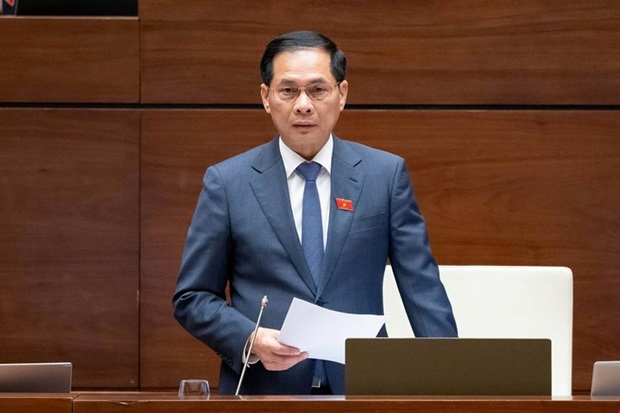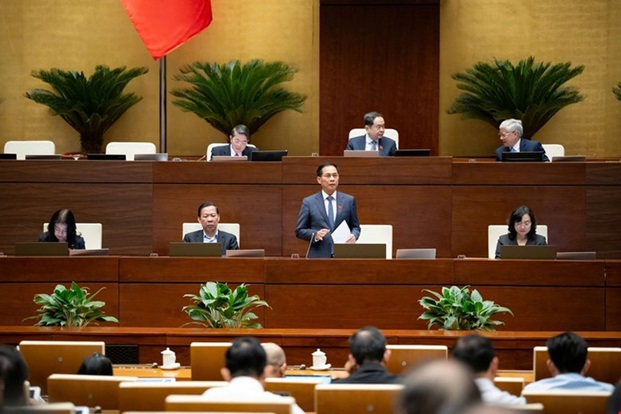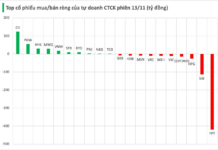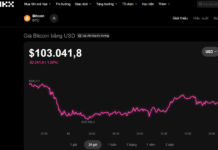
Deputy Prime Minister Bui Thanh Son Clarifies Key Issues on the E-Commerce Law Project
|
On the afternoon of November 13th, during the National Assembly’s plenary discussion on the E-Commerce Law project, Deputy Prime Minister Bui Thanh Son addressed several key concerns raised by delegates.
Clarifying Responsibilities and Combating Counterfeit Goods
Expressing gratitude for the delegates’ candid and insightful contributions, the Deputy Prime Minister emphasized that e-commerce in Vietnam has grown robustly, keeping pace with global trends. However, it has only been regulated by Decree 52/2013/NĐ-CP and Decree 85/2021/NĐ-CP.
Therefore, the enactment of a specialized law is essential to create a new development space, ensure effective management, and protect the rights of consumers and producers.
Regarding the law’s scope and application, most National Assembly delegates supported its expansion but urged thorough review to ensure consistency within the legal system and avoid overlap with other laws, particularly the Commercial Law.
The Deputy Prime Minister noted that the drafting agency reviewed 51 legal documents, including 31 laws and 19 decrees, such as the Law on Science, Technology, and Innovation, the Law on Digital Technology Industry, the Law on Personal Data Protection, the Law on Digital Transformation, the Tax Administration Law, and the Cybersecurity Law, to ensure uniformity and coherence.
Despite concerns about potential conflicts, the Deputy Prime Minister assured that the Government would direct further review and refinement of the draft to ensure compatibility with the legal system.
A significant concern among delegates was the responsibility of e-commerce platform operators. The Deputy Prime Minister stated that the draft law fully defines the legal status of e-commerce models, from direct sales to multi-party trading platforms, and assigns responsibilities based on participation levels.
The draft also mandates domestic sellers to verify their identity via VNeID, while foreign sellers must provide legal documentation to ensure transaction transparency and traceability, enhancing consumer protection. The goal is to combat counterfeit goods, fraud, and online trade violations, a concern raised by many delegates.
The Government will incorporate these suggestions into detailed regulations in the implementing decree, including flexible and timely anti-counterfeiting measures.
For intermediary organizations supporting e-commerce, the draft adds responsibilities for payment platforms, payment intermediaries, and logistics providers, such as establishing complaint mechanisms, ensuring data security, verifying product records, and removing violating platforms upon request. Delegate feedback will be further studied to balance rigor with development potential.

National Assembly Discusses the E-Commerce Law Project
|
Regulating Livestream Sales and Protecting Consumers and Children
Another key topic was livestream sales, a rapidly growing e-commerce format attracting many users, especially women and youth.
The Deputy Prime Minister noted that the draft law requires livestream platforms to verify broadcaster identities, remove violating content, display risk warnings, and store audio-visual data for management. It also outlines specific responsibilities for livestreamers and sellers to ensure transparency, transaction safety, and consumer rights, particularly for vulnerable groups like children. The Government will refine this based on delegate feedback.
Regarding cross-border e-commerce, Deputy Prime Minister Bui Thanh Son stated that the law’s development reviewed eight international treaties (three bilateral, five multilateral) and confirmed compliance with Vietnam’s international commitments.
The draft mandates foreign e-commerce platforms using Vietnamese, the “.vn” domain, or meeting transaction thresholds with Vietnamese buyers to establish a legal entity in Vietnam, appoint a local representative, and deposit funds to ensure compensation for violations.
Foreign sellers must fulfill similar obligations as domestic sellers, such as providing identification, business conditions, and transparent seller information, to ensure fair competition and market clarity.
Many delegates stressed that e-commerce policies should foster innovation, expand cross-border markets, and safeguard national interests. The Deputy Prime Minister highlighted that e-commerce revenue reached approximately $21 billion in 2023, rising to $25 billion in 2024, with expected tax revenue of 200 trillion VND this year, indicating rapid market growth.
The Government will refine policies for smart, green, and sustainable e-commerce development, focusing on digital infrastructure, payments, logistics, and high-quality human resources, while supporting SMEs, cooperatives, households, women, the disabled, and disadvantaged areas through training and digital transformation.
Regarding administrative procedures, the draft law minimizes compliance costs, shifts from ex-ante to ex-post checks, and leverages IT and risk data for simplification.
Only 20 administrative procedures remain in e-commerce, all conducted electronically, reducing management burden, benefiting businesses, and protecting consumers while ensuring state management uniformity.
– 22:30 13/11/2025
Hanoi Uncovers Over 1,600 Counterfeit Luxury Handbags
In the coming period, the Hanoi Market Management Department will intensify unannounced inspections, focusing on consumer goods, fashion, cosmetics, and food products.
“Government Agency Provides Insights on ‘Open-Access, Interconnected’ Approach to Electric Vehicle Charging Infrastructure”
The Bureau of Industry has unified its approach to charging infrastructure, embracing a policy of “openness, interoperability, and fair competition.” This strategy aims to delineate market segments, safeguard consumer rights, and establish a robust foundation for the growth of the domestic charging equipment support industry.
Vietnam to Further Expand Market Access for U.S. Goods
Vietnam’s Deputy Prime Minister, Bùi Thanh Sơn, has reaffirmed the country’s commitment to significantly increase imports of American goods, particularly high-tech products such as aircraft and semiconductors. This initiative aims to expand market opportunities for U.S. goods and ensure a conducive business environment for American companies operating in Vietnam.












































